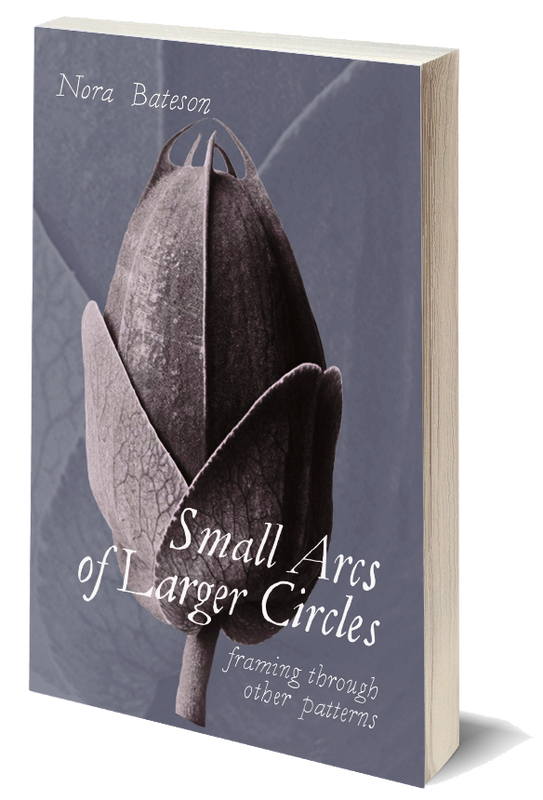|
Published by Triarchy Press in 2016
Paperback List Price: £17.50/$20 210 pp. ~ 15.6 x 23.4cm ISBN: 978-1-909470-96-5 Buy the paperback£17.50 ($23/€20) +p&p (see shipping costs)
Buy the pdf (£15)Click the 'Buy' button below. At checkout, click No postage on ebooks from the dropdown.
After paying, we will send an immediate confirmation and email your ebook file within 24 hours. PDF ISBN 978-1-911193-17-3
version: bookmarked pdf (pdf text cannot be edited, printed or copied - email us if you need this capability.) Readership
The book will interest anyone who knows the work of Nora Bateson, her father Gregory Bateson and the International Bateson Institute: social and organizational theorists and practitioners, futurists, systems thinkers, psychotherapists, and general readers concerned with where our world is heading.
See interviews with Nora
Read the Glossary Press materials See book reviews Details of Dialektikon - a play reconstructing the 1967 ‘Dialectics of Liberation’ meeting in London at which Gregory Bateson was present. KeywordsSystems thinking, education, social anthropology, environmentalism, Bateson, symmathesy, inter-learning, knowledge, transcontextuality, Ecological Design, Regenerative Economy, New Economics, Futures Studies, Thrivability.
|
"If I have a hope for this decade, it's that we might stop coming up with goals."
Nora Bateson, Jan 2020, Communities for Future: Online Summit Small Arcs of Larger Circles |

